Bank of England Cuts Interest Rates for First Time Since 2020
By Rediff Money Desk, London Aug 01, 2024 17:37
The Bank of England has lowered its main interest rate by 0.25% to 5%, its first cut since early 2020, amid easing inflationary pressures. The decision comes after a year of unchanged rates and follows a period of dramatic hikes.

London, Aug 1 (AP) The Bank of England has cut interest rates for the first time since the onset of the COVID-19 pandemic in early 2020.
In a statement Thursday, the bank said that by a 5-4 margin, its nine-member policymaking panel backed a quarter-point reduction in its main interest rate to 5%, from the 16-year of 5.25%.
Economists were divided as to whether the bank, which is independent of government, would cut rates given persistent price pressures in the services sector, which accounts for around 80% of the British economy.
Yet inflation in the U.K overall has already hit the bank's target of 2%.
Interest rates in the U.K. have been unchanged for a year after a dramatic series of hikes but it's been clear for a few months that the Monetary Policy Committee had been moving towards a cut.
Inflationary pressures have eased enough that we've been able to cut interest rates today, said Bank Gov. Andrew Bailey. But we need to make sure inflation stays low, and be careful not to cut interest rates too quickly or by too much. Ensuring low and stable inflation is the best thing we can do to support economic growth and the prosperity of the country.
Central banks around the world dramatically increased borrowing costs from the lows seen during the coronavirus pandemic when prices started to shoot up, first as a result of supply chain issues built up during the pandemic and then because of Russia's full-scale invasion of Ukraine which pushed up energy costs.
Higher interest rates which cool the economy by making it more expensive to borrow have helped ease inflation, but they've also weighed on the British economy, which has barely grown since the pandemic rebound.
Critics of the Bank of England say it is being overly cautious about inflation and that keeping interest rates too high for too long will unnecessarily weigh on the economy. It is a charge that's also been leveled against the U.S. Federal Reserve, which has also kept rates unchanged in recent months, but like the Bank of England is mulling over when to start cutting.
Some central banks, including the European Central Bank, have started reducing rates but are doing so cautiously. (AP)
In a statement Thursday, the bank said that by a 5-4 margin, its nine-member policymaking panel backed a quarter-point reduction in its main interest rate to 5%, from the 16-year of 5.25%.
Economists were divided as to whether the bank, which is independent of government, would cut rates given persistent price pressures in the services sector, which accounts for around 80% of the British economy.
Yet inflation in the U.K overall has already hit the bank's target of 2%.
Interest rates in the U.K. have been unchanged for a year after a dramatic series of hikes but it's been clear for a few months that the Monetary Policy Committee had been moving towards a cut.
Inflationary pressures have eased enough that we've been able to cut interest rates today, said Bank Gov. Andrew Bailey. But we need to make sure inflation stays low, and be careful not to cut interest rates too quickly or by too much. Ensuring low and stable inflation is the best thing we can do to support economic growth and the prosperity of the country.
Central banks around the world dramatically increased borrowing costs from the lows seen during the coronavirus pandemic when prices started to shoot up, first as a result of supply chain issues built up during the pandemic and then because of Russia's full-scale invasion of Ukraine which pushed up energy costs.
Higher interest rates which cool the economy by making it more expensive to borrow have helped ease inflation, but they've also weighed on the British economy, which has barely grown since the pandemic rebound.
Critics of the Bank of England say it is being overly cautious about inflation and that keeping interest rates too high for too long will unnecessarily weigh on the economy. It is a charge that's also been leveled against the U.S. Federal Reserve, which has also kept rates unchanged in recent months, but like the Bank of England is mulling over when to start cutting.
Some central banks, including the European Central Bank, have started reducing rates but are doing so cautiously. (AP)
Source: ASSOCIATED PRESS
DISCLAIMER - This article is from a syndicated feed. The original source is responsible for accuracy, views & content ownership. Views expressed may not reflect those of rediff.com India Limited.
You May Like To Read
TODAY'S MOST TRADED COMPANIES
- Company Name
- Price
- Volume
- GTL Infrastructure
- 2.75 ( -4.84)
- 91787188
- YES Bank Ltd.
- 23.54 ( -7.50)
- 56012274
- Suzlon Energy Ltd.
- 67.91 ( -4.94)
- 33571450
- Vodafone Idea L
- 15.36 ( -4.66)
- 29911289
- Srestha Finvest
- 2.15 ( -4.87)
- 24478182
MORE NEWS

FirstCry Parent Brainbees Raises Rs 1,886 Cr...
Brainbees Solutions, parent company of FirstCry, secures Rs 1,886 crore from anchor...

Unicommerce IPO: Rs 124 Cr Raised from Anchor...
Unicommerce eSolutions, a SoftBank-backed SaaS platform, has raised Rs 124 crore from...

MTNL Defaults on Rs 422 Crore Bank Loan:...
State-owned telecom company MTNL has defaulted on Rs 422.05 crore in bank loan...







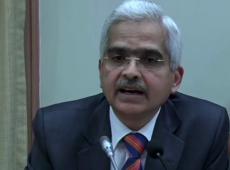
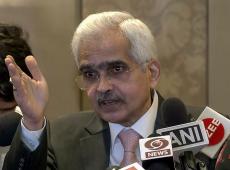
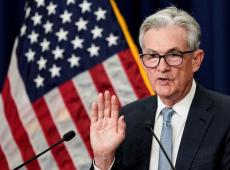
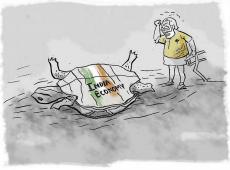
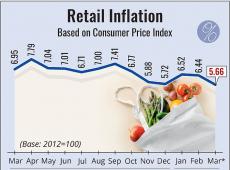
 © 2024 Rediff.com India Limited. All rights reserved.
© 2024 Rediff.com India Limited. All rights reserved.